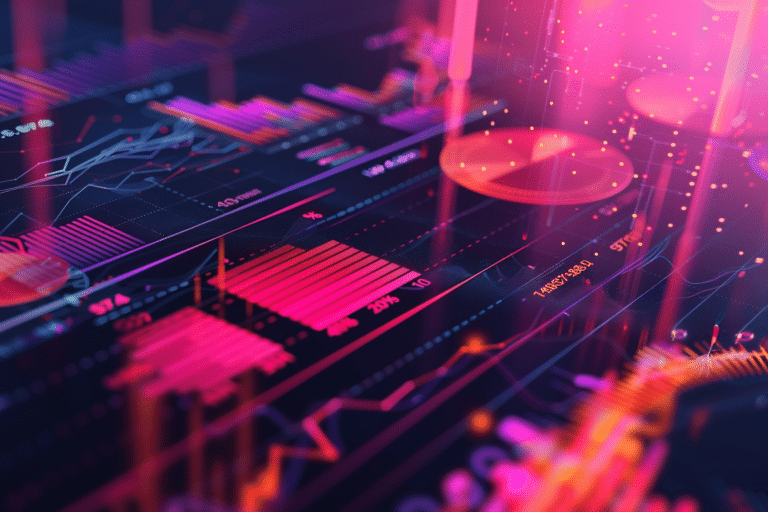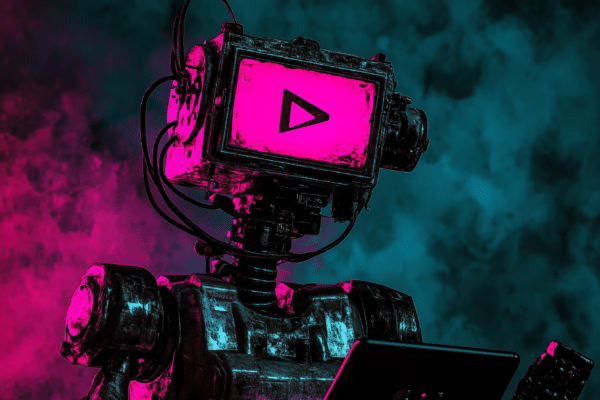Considering the speed at which generative artificial intelligence is advancing, it is difficult to think about how it will change many aspects of companies and the workplace in the future, including the HR area.
However, there are some people who dare to go a little further, such as technologists. They can identify current trends and glimpse which ones will set the foundations in the coming years.
This is the case of Raúl Gómez Púa, an expert in innovation, technological strategy and digital transformation in the financial sector and head of Devices & Document Management Architecture.
On the occasion of the HR Evolution 2024 event, which addressed, among other aspects, the common ground between human resources and artificial intelligence, he gave us some insights.
- How do you perceive that HR professionals are becoming interested in, adopting and implementing AI in their processes?
- I think that, in general, in almost all sectors there is a certain anxiety to implement AI solutions to any business, because its applicability is going to impact all sectors, especially skilled jobs.
In the HR sector, I think that the applicability is very clear with respect to what we were talking about with respect to all the analysis that the department does for the work of both promotion and the establishment of policies that affect employees.
Across the board, what you can see in any industry is that that anxiety leads any organization to start adopting AI solutions without perhaps having a foundation that allows that AI to work or to be really efficient.
If we want to have very powerful use cases and AI software that truly helps me as an HR department, what I have to start with is having a universe of data, in this case from my employees.
The key here is that this data has volume, variety and, above all, veracity. I think the latter is the one that needs the most work and, of course, this is not a job that an AI will do for you. In my opinion, this is the main line that HR departments should focus on in order to implement and assimilate AI solutions that can use this data to generate insights about things we don't know.
In the end, the AI paradigm is very simple. The value of AI is not only to organize tasks, but to do it better than a human can. That expertise that a person has to make a decision, that business sense, is what is being replaced by AI. Therefore, artificial intelligence solutions have to start discovering things that we don't even know about our employees and that facilitate the efficiency of the organization.
Applying AI technology to HR seems very interesting to me, because in the end it goes to the core of organizations.
- We have been talking about AI intensely in companies for a year and a half, but previously many organizations were already using data analytics and other tools. How does generative AI come to change all that was already being done and bring new things to the processes of HR departments?
- There is a tremendous leap from analytical AI, which, as you say, has been applied to all sectors for years. Many have integrated it better than others and perhaps HR is not one of those that have adopted analytical AI better.
Generative AI allows us to do different things. The most basic use case is perhaps a job description, how an artificial intelligence is not only going to extract or give me insights into things that are going on in our organization through data, but is able to help me create something from where it doesn't exist.
In that sense, things like writing job descriptions or policies for certain departments can be very applicable use cases. Notice that we are talking about tasks that will be solved for me that correspond to positions within a managerial level and for me that is the challenge that generative AI brings to the table.
We can talk about different benefits but for me what is really innovative about generative AI happens at the level of the mindset, of the people who make up an organization and the people who make the decisions. If we talk about how a company's communication policy is designed, those decisions are taken by very senior profiles, at the level of the steering committee.
Perhaps all this sounds a bit like science fiction if you do not have the foundations, if you do not have that universe of data that allows a model or an algorithm that also has to be previously designed (logically with the effort involved and the expertise needed) to make an analysis.
- In recruitment processes where recruiters can use AI to conduct interviews, to detect emotions, to read between the lines in corporate emails, etc., there may come a time when employees may be well versed in this type of things and also make use of it.
I mean, maybe not too long from now candidates will know or know how to use AI because they get to learn what recruiters want. So could it happen that you have one part AI talking to another part AI in the recruiting process?
- It certainly can. It can happen. If we take it to the physical plane, to the actual plane, it's no different than what we do now manually. For years now, HR departments have been trying to get an idea of each person's profile through their social media profiles, for example.
In the end I understand that there are people who generate those social media profiles knowing that there is an HR department - in a position for which they are a candidate - that they want to see certain things.
If we take it to the next level and automate that process on both the HR side and the candidate side you can possibly have something as absurd as tools, like AI software, crossing over to do both. That's why in the end I think the human function is not going to go away.
In this whole world of AI for IT there are very interesting use cases. There are already companies that, when uploading a project or student work, analyze the document to check the sources and produce a very precise analytical report on what part has been generated by an AI. The curious thing is that this software is also made with AI. These tools are going to become more and more important. This example is already happening in other industries, so of course it's going to happen in HR.
The real milestone that ChatGPT represents is the democratization of generative AI. GPT has been around since version 2 or 3, but no one has heard about that. We all started talking about artificial intelligence and it became popular when we really opened up the tool through ChatGPT.
- I was reading recently that a British company has hired the first artificial intelligence employee. Avery has been fully personified as a worker with a ChatGPT-generated CV, a portrait drawn by an AI and using a Linkedin account.
Also growing on platforms like Instagram is the number of influencer accounts that don't actually exist and are generated by artificial intelligences. Will there come a time when in selection processes we will have to discriminate between AIs or between digital avatars to see which one is hired?
- This is a very good question because it has already happened in the influencer sector. In the rest of the sectors for now it is a bit more science fiction, at least in my opinion. It is true that everything is moving very fast, but I have my doubts.
I end many of my conferences with a quote, in this case from Albert Einstein. He used to ask himself that if technological advances were ever greater and were aimed at making our lives easier, why were they not capable of making us happier. He himself answered that the reason was because we had not yet been able to learn how to use them.
It is a phrase that could not be more in line with the current situation. So, all this talk of digital avatars.... In short, technology allows us to do more wonderful things, but we also tend not to use it properly. Our challenge as a civilization is that: to learn to use it properly.






